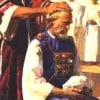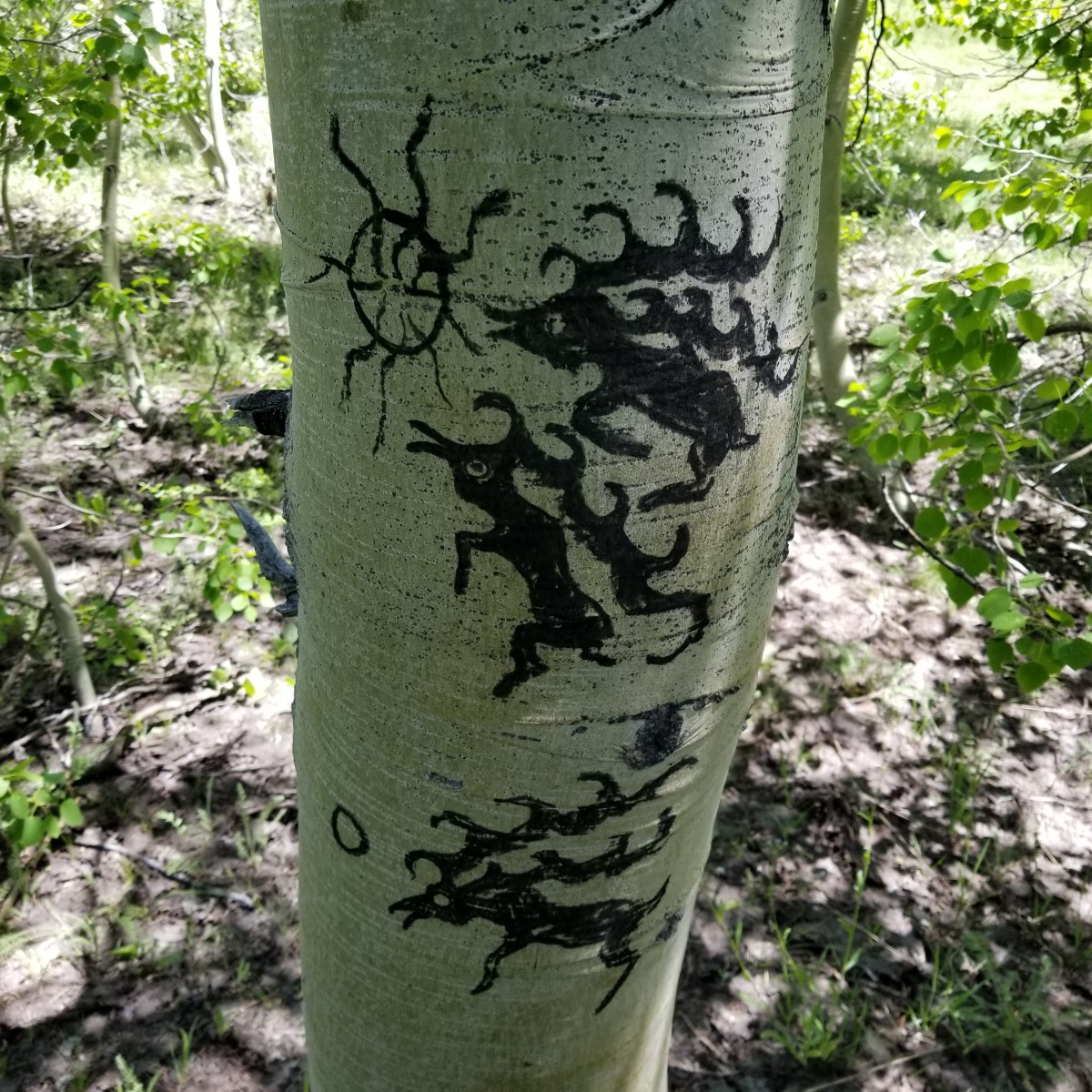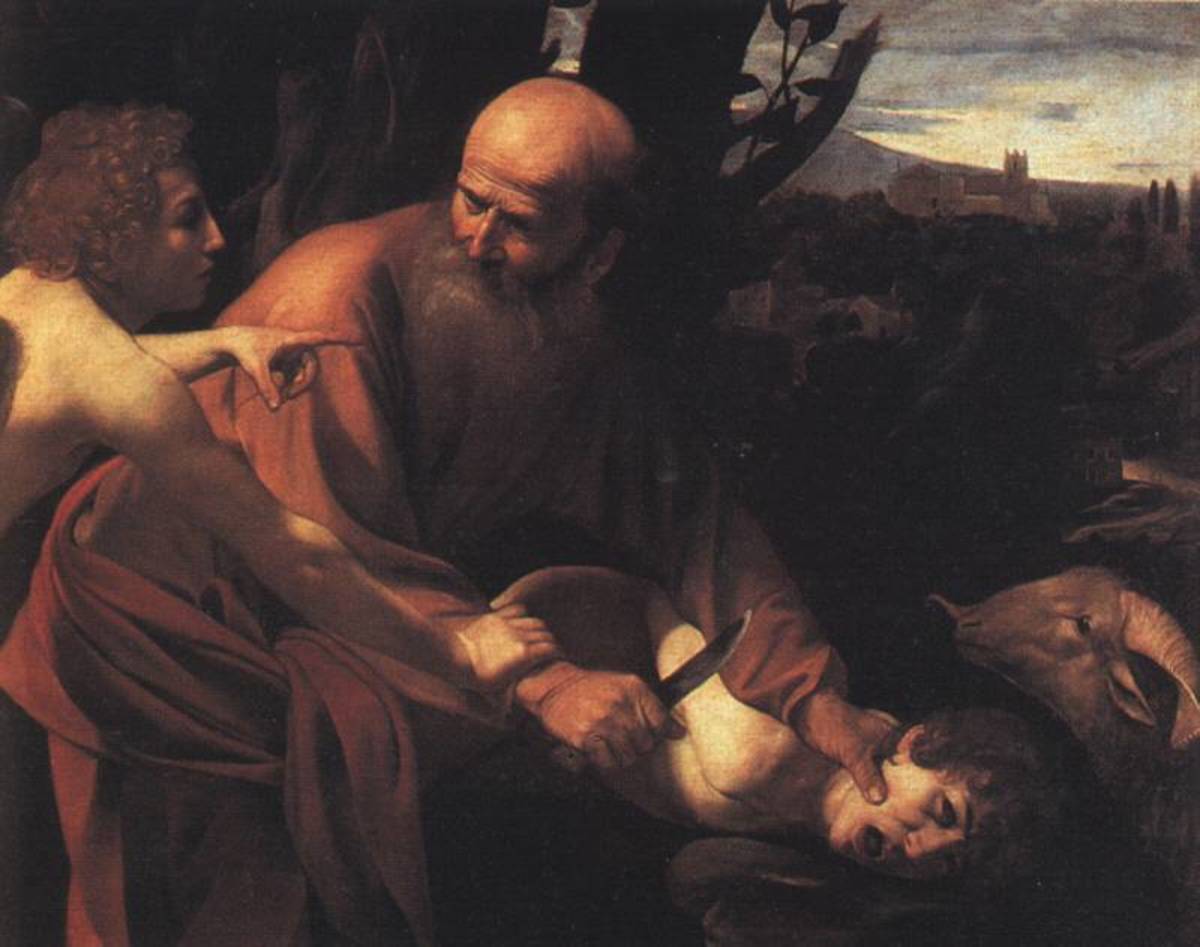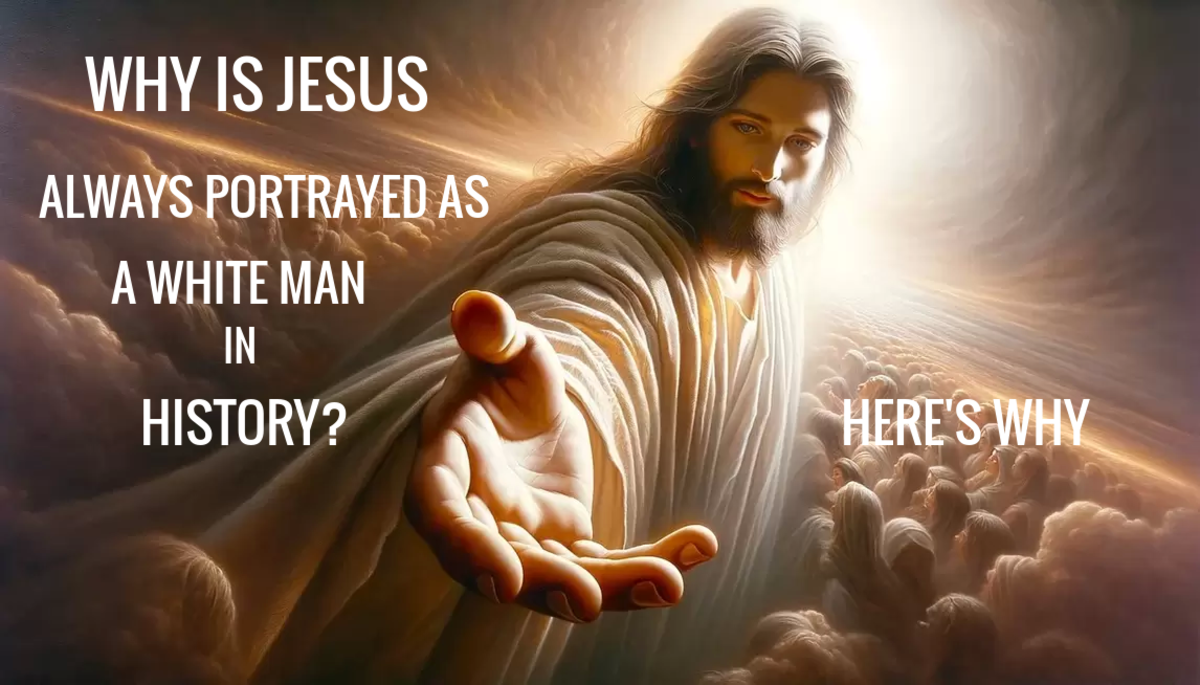The Sacrifice: Wisdom of Kahana
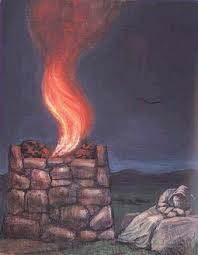
My sincere apologies to all those that have asked where's my next article? Why aren't I writing anything? I should explain, when I am absent from my writing, it usually means I am busy saving lives. Working on projects that will save countless millions of people, regardless of race, religion, colour or politics. Last week involved two projects. One which will hopefully save the 60,000 children that die every year from a virulent diarrhea, and the second a disease whih still claims over ten million lives every year. So please be patient when I am not writing and know that I am still working for the benefit of mankind.
From recent comments, it is quite apparent that even some of the most faithful to the religious teachings are concerned about the requirement for sacrifice. So for this article I will stray for the Journey Unto Shiloh series to deal with what might be considered a pressing problem. Even the terminology used to describe this anciet practice are shrouded in terms that reflect a popular distaste for these commandments. Terms such as ‘tribal’, ‘cult’, and even ‘barbaric’. I cannot argue with the 21st Century perspective that the practice of burnt offerings should be welcome with open arms and practiced by one and all. I can argue that even though viewed as distasteful by a modern society, that the burnt offerings are a commandment, and that being the case, then they are also a requirement. We can argue all we want that they are not necessary as long as there is no Ark or no Temple, or even that they were adopted from other primitive races and therefore shouldn’t have been included. It is your prerogative to argue, but as we have always said, our failure to follow God is because we chose instead to follow the words of men, even when we had the Lord’s words directly in front of us.
I cannot tell you why the Almighty requires burnt offerings. I personally cannot see the pleasure or satisfaction that would be derived by such an act. All I know is that part of following God and having His blessing is to do what He requests without question. As Abraham prepared to sacrifice Isaac, it was without question. The father of our people did not hesitate, although I know inside he was torturing himself, but whatever the reason for the act of a blood sacrifice, Abraham understood and knew that the Lord had this requirement. We don’t have that same clarity of understanding. We know longer know the reasons for it, nor why it was such a necessity by the Lord. But obviously it had its reasons and no one shied from the responsibility of giving until the Lord what he requested. As for our excuses why we should not do it, those too are hopelessly inadequate when challenged by the truth of the Torah.
IN THE BEGINNING
We say that they are not necessary until the Temple is rebuilt or the Ark is recovered, yet the burnt offering was never tied to either of these objects. As we can see from Genesis Chater.4:
ג וַיְהִי, מִקֵּץ יָמִים; וַיָּבֵא קַיִן מִפְּרִי הָאֲדָמָה, מִנְחָה--לַיהוָה.
3 And in process of time it came to pass, that Cain brought of the fruit of the ground an offering unto the LORD.
ד וְהֶבֶל הֵבִיא גַם-הוּא מִבְּכֹרוֹת צֹאנוֹ, וּמֵחֶלְבֵהֶן; וַיִּשַׁע יְהוָה, אֶל-הֶבֶל וְאֶל-מִנְחָתוֹ.
4 And Abel, he also brought of the firstlings of his flock and of the fat thereof. And the LORD had respect unto Abel and to his offering;
ה וְאֶל-קַיִן וְאֶל-מִנְחָתוֹ, לֹא שָׁעָה; וַיִּחַר לְקַיִן מְאֹד, וַיִּפְּלוּ פָּנָיו.
5 but unto Cain and to his offering He had not respect. And Cain was very wroth, and his countenance fell.
ו וַיֹּאמֶר יְהוָה, אֶל-קָיִן: לָמָּה חָרָה לָךְ, וְלָמָּה נָפְלוּ פָנֶיךָ.
6 And the LORD said unto Cain: 'Why art thou wroth? and why is thy countenance fallen?
ז הֲלוֹא אִם-תֵּיטִיב, שְׂאֵת, וְאִם לֹא תֵיטִיב, לַפֶּתַח חַטָּאת רֹבֵץ; וְאֵלֶיךָ, תְּשׁוּקָתוֹ, וְאַתָּה, תִּמְשָׁל-בּוֹ.
7 If thou doest well, shall it not be lifted up? and if thou doest not well, sin coucheth at the door; and unto thee is its desire, but thou mayest rule over it.
What we can appreciate from this chapter that even at the beginning, the Lord required the burnt offerings. When an attempt was made by Cain to replace this requirement, it was rejected. What form this rejection took we may never know but it was evident that Cain was well aware of his own rejection for attempting to avoid the act of burnt offering. One could argue that Cain was offering very little, merely going through an act without really sacrificing anything of true value, but for any of you that have ever engaged in farming, you would know the acts of ploughing, seeding, watering, hoeing and finally harvesting are far more laborious than sitting on a rock and watching sheep do what they do naturally. Therefore it was not about the value of the sacrifice but concerned only the fact that one was offering a blood sacrifice and the other was not. Nor was there any Temple or an Ark at this time. Therefore the act of burnt offerings was completely independent of either of these items and we cannot use them as an excuse for our failure to execute God’s will.
We learn more about the sacrificial purpose when we read about Noah in Genesis Chapter 8:
כ וַיִּבֶן נֹחַ מִזְבֵּחַ, לַיהוָה; וַיִּקַּח מִכֹּל הַבְּהֵמָה הַטְּהֹרָה, וּמִכֹּל הָעוֹף הַטָּהוֹר, וַיַּעַל עֹלֹת, בַּמִּזְבֵּחַ.
20 And Noah builded an altar unto the LORD; and took of every clean beast, and of every clean fowl, and offered burnt-offerings on the altar.
Clearly, the purpose of sacrifice is to demonstrate our thanks, our love, our appreciation for God. And once again it did not require a Temple or an Ark, because Noah preceded both of these items by hundreds of Temple or an Ark, because Noah preceded both of these items by hundreds of years. What we do notice from the story of Cain and Abel and from the Flood is that the burnt offering was a contractual bond between man and God. We do not hear of them repeating the act continually, only once in both cases to cement this deal. What does that tell us? Simply that when an individual is ready to pledge his unswerving loyalty to the Almighty, to praise the Lord and declare he will follow no other false gods, then the burnt offering is made.
THE COVENANTS
It is not until Genesis Chapter 15 when we have our first major relationship between man and God, that being the covenant with Abraham, that we manage to get a fuller picture of the burnt offering:
ח וַיֹּאמַר: אֲדֹנָי יְהוִה, בַּמָּה אֵדַע כִּי אִירָשֶׁנָּה.
8 And he said: 'O Lord GOD, whereby shall I know that I shall inherit it?'
ט וַיֹּאמֶר אֵלָיו, קְחָה לִי עֶגְלָה מְשֻׁלֶּשֶׁת, וְעֵז מְשֻׁלֶּשֶׁת, וְאַיִל מְשֻׁלָּשׁ; וְתֹר, וְגוֹזָל.
9 And He said unto him: 'Take Me a heifer of three years old, and a she-goat of three years old, and a ram of three years old, and a turtle-dove, and a young pigeon.'
י וַיִּקַּח-לוֹ אֶת-כָּל-אֵלֶּה, וַיְבַתֵּר אֹתָם בַּתָּוֶךְ, וַיִּתֵּן אִישׁ-בִּתְרוֹ, לִקְרַאת רֵעֵהוּ; וְאֶת-הַצִּפֹּר, לֹא בָתָר.
10 And he took him all these, and divided them in the midst, and laid each half over against the other; but the birds divided he not
Similar to Noah, Abraham was instructed to offer up every manner of clean animal. Therefore, there would appear to be some degree of relationship to the number and kinds of animals to be sacrificed and the degree of the contract. The bigger the contract, the more burn offerings required.
This contrasts with contracts made between men where it would appear that the burnt offering is not a requirement as evident in Genesis Chapter 21:
לב וַיִּכְרְתוּ בְרִית, בִּבְאֵר שָׁבַע; וַיָּקָם אֲבִימֶלֶךְ, וּפִיכֹל שַׂר-צְבָאוֹ, וַיָּשֻׁבוּ, אֶל-אֶרֶץ פְּלִשְׁתִּים.
32 So they made a covenant at Beer-sheba; and Abimelech rose up, and Phicol the captain of his host, and they returned into the land of the Philistines.
לג וַיִּטַּע אֶשֶׁל, בִּבְאֵר שָׁבַע; וַיִּקְרָא-שָׁם--בְּשֵׁם יְהוָה, אֵל עוֹלָם.
33 And Abraham planted a tamarisk-tree in Beer-sheba, and called there on the name of the LORD, the Everlasting God
Contracts between men only required a marker at the spot where the contract was agreed upon. Whether it be a tree, a cairn of stones, or even the erection of an altar without any sacrifice, these would appear to be the common means to seal an agreement between men.
From Genesis Chapter 22 we recognize that God uses the burnt offering as a sign of the degree of commitment and faith from the party He is dealing with. Thought there was no intention on God’s part to sacrifice Isaac, He still tested Abraham to see if he would live up to his responsibility of sealing their agreement with an offering made by special request.:
יב וַיֹּאמֶר, אַל-תִּשְׁלַח יָדְךָ אֶל-הַנַּעַר, וְאַל-תַּעַשׂ לוֹ, מְאוּמָה: כִּי עַתָּה יָדַעְתִּי, כִּי-יְרֵא אֱלֹהִים אַתָּה, וְלֹא חָשַׂכְתָּ אֶת-בִּנְךָ אֶת-יְחִידְךָ, מִמֶּנִּי.
12 And he said: 'Lay not thy hand upon the lad, neither do thou any thing unto him; for now I know that thou art a God-fearing man, seeing thou hast not withheld thy son, thine only son, from Me.'
יג וַיִּשָּׂא אַבְרָהָם אֶת-עֵינָיו, וַיַּרְא וְהִנֵּה-אַיִל, אַחַר, נֶאֱחַז בַּסְּבַךְ בְּקַרְנָיו; וַיֵּלֶךְ אַבְרָהָם וַיִּקַּח אֶת-הָאַיִל, וַיַּעֲלֵהוּ לְעֹלָה תַּחַת בְּנוֹ.
13 And Abraham lifted up his eyes, and looked, and behold behind him a ram caught in the thicket by his horns. And Abraham went and took the ram, and offered him up for a burnt-offering in the stead of his son
Once again from Genesis Chapter 31 we see that covenants, agreements and contracts between men did not require any special thanks to the Lord for making it happen:
מה וַיִּקַּח יַעֲקֹב, אָבֶן; וַיְרִימֶהָ, מַצֵּבָה.
45 And Jacob took a stone, and set it up for a pillar.
מו וַיֹּאמֶר יַעֲקֹב לְאֶחָיו לִקְטוּ אֲבָנִים, וַיִּקְחוּ אֲבָנִים וַיַּעֲשׂוּ-גָל; וַיֹּאכְלוּ שָׁם, עַל-הַגָּל.
46 And Jacob said unto his brethren: 'Gather stones'; and they took stones, and made a heap. And they did eat there by the heap.
מז וַיִּקְרָא-לוֹ לָבָן, יְגַר שָׂהֲדוּתָא; וְיַעֲקֹב, קָרָא לוֹ גַּלְעֵד.
47 And Laban called it Jegar-sahadutha; but Jacob called it Galeed
But as soon as Jacob wanted to thank the Lord for his safe delivery from Laban, then that personal agreement between God and man did require the burnt offering even though it was related to the agreement mentioned in the earlier sentences. So as a three-party agreement, there were special requirements made of Jacob because he was informed by his father-in-law that God had personally intervened and instructed Laban that he was not to harm Jacob. This demonstrates that the giving of thanks through the sacrifice is a requirement whenever there is a direct, one-to-one, dealing between man and God as seen below:
נד וַיִּזְבַּח יַעֲקֹב זֶבַח בָּהָר, וַיִּקְרָא לְאֶחָיו לֶאֱכָל-לָחֶם; וַיֹּאכְלוּ לֶחֶם, וַיָּלִינוּ בָּהָר.
54 And Jacob offered a sacrifice in the mountain, and called his brethren to eat bread; and they did eat bread, and tarried all night in the mountain.
That is the extent and limit to the burnt offerings in Genesis. It tells us several things. One is that there is no requirement for Temple or Ark in order to conduct the sacrifice. Secondly, the burnt offering is only made when there has been a direct contract, agreement, aid between a man and God. It is not an act performed willy-nilly, without purpose, and with a substantial reason for undertaking it.
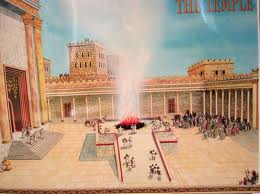
PERSONAL VERSUS INSTITUTIONAL
It is in the book of Exodus that we obtain a different perspective. Following the departure from Egypt, the act of offering burnt offerings begins a transformation from this personal relationship to one of a state or institutional practice. As we see in Exodus 18 Jethro is grateful for his prayers being answered and the release of the Children of Israel from bondage. It is Jethro making the sacrifice, his own personal act of gratitude and is not to be confused with the latter institutional sacrifice that developed:
יב וַיִּקַּח יִתְרוֹ חֹתֵן מֹשֶׁה, עֹלָה וּזְבָחִים--לֵאלֹהִים; וַיָּבֹא אַהֲרֹן וְכֹל זִקְנֵי יִשְׂרָאֵל, לֶאֱכָל-לֶחֶם עִם-חֹתֵן מֹשֶׁה--לִפְנֵי הָאֱלֹהִים.
12 And Jethro, Moses' father-in-law, took a burnt-offering and sacrifices for God; and Aaron came, and all the elders of Israel, to eat bread with Moses' father-in-law before God
As the departure from Egypt proceeds, the act of the burnt offerings becomes a fundamental commandment to the people as seen in Exodus 20:
כ מִזְבַּח אֲדָמָה, תַּעֲשֶׂה-לִּי, וְזָבַחְתָּ עָלָיו אֶת-עֹלֹתֶיךָ וְאֶת-שְׁלָמֶיךָ, אֶת-צֹאנְךָ וְאֶת-בְּקָרֶךָ; בְּכָל-הַמָּקוֹם אֲשֶׁר אַזְכִּיר אֶת-שְׁמִי, אָבוֹא אֵלֶיךָ וּבֵרַכְתִּיךָ.
20 An altar of earth thou shalt make unto Me, and shalt sacrifice thereon thy burnt-offerings, and thy peace-offerings, thy sheep, and thine oxen; in every place where I cause My name to be mentioned I will come unto thee and bless thee.
The reasons for this may be obvious. God intervened on behalf of an entire people. They all owed him their thanks and their gratitude. Therefore, one animal sacrifice on behalf of them all was not going to do it. The Lord had to know that everyone personally accepted the contract that He made with them. This contract being the release from bondage, the delivery from Egypt , the safe conduct to a new land, and providing the Promised Land to their care. Something of this magnitude was not going to sealed with minimal cost. A constant reminder was required as seen in Exodus Chapter 24:
ה וַיִּשְׁלַח, אֶת-נַעֲרֵי בְּנֵי יִשְׂרָאֵל, וַיַּעֲלוּ, עֹלֹת; וַיִּזְבְּחוּ זְבָחִים שְׁלָמִים, לַיהוָה--פָּרִים.
5 And he sent the young men of the children of Israel, who offered burnt-offerings, and sacrificed peace-offerings of oxen unto the LORD.
ו וַיִּקַּח מֹשֶׁה חֲצִי הַדָּם, וַיָּשֶׂם בָּאַגָּנֹת; וַחֲצִי הַדָּם, זָרַק עַל-הַמִּזְבֵּחַ.
6 And Moses took half of the blood, and put it in basins; and half of the blood he dashed against the altar.
ז וַיִּקַּח סֵפֶר הַבְּרִית, וַיִּקְרָא בְּאָזְנֵי הָעָם; וַיֹּאמְרוּ, כֹּל אֲשֶׁר-דִּבֶּר יְהוָה נַעֲשֶׂה וְנִשְׁמָע.
7 And he took the book of the covenant, and read in the hearing of the people; and they said: 'All that the LORD hath spoken will we do, and obey.'
ח וַיִּקַּח מֹשֶׁה אֶת-הַדָּם, וַיִּזְרֹק עַל-הָעָם; וַיֹּאמֶר, הִנֵּה דַם-הַבְּרִית אֲשֶׁר כָּרַת יְהוָה עִמָּכֶם, עַל כָּל-הַדְּבָרִים, הָאֵלֶּה.
8 And Moses took the blood, and sprinkled it on the people, and said: 'Behold the blood of the covenant, which the LORD hath made with you in agreement with all these words.
CONTINUITY THROUGHOUT GENERATIONS
This represents the first time a contract was sealed with an entire people. In order to do so a ritual of service was require. The fact that this contract had to be constantly renewed, extended to every following generation meant that the burnt offerings also had to be continually performed and this requirement was dealt with in Exodus Chapter 29::
מא וְאֵת הַכֶּבֶשׂ הַשֵּׁנִי, תַּעֲשֶׂה בֵּין הָעַרְבָּיִם: כְּמִנְחַת הַבֹּקֶר וּכְנִסְכָּהּ, תַּעֲשֶׂה-לָּהּ, לְרֵיחַ נִיחֹחַ, אִשֶּׁה לַיהוָה.
41 And the other lamb thou shalt offer at dusk, and shalt do thereto according to the meal-offering of the morning, and according to the drink-offering thereof, for a sweet savour, an offering made by fire unto the LORD.
מב עֹלַת תָּמִיד לְדֹרֹתֵיכֶם, פֶּתַח אֹהֶל-מוֹעֵד לִפְנֵי יְהוָה, אֲשֶׁר אִוָּעֵד לָכֶם שָׁמָּה, לְדַבֵּר אֵלֶיךָ שָׁם.
42 It shall be a continual burnt-offering throughout your generations at the door of the tent of meeting before the LORD, where I will meet with you, to speak there unto thee.
מג וְנֹעַדְתִּי שָׁמָּה, לִבְנֵי יִשְׂרָאֵל; וְנִקְדַּשׁ, בִּכְבֹדִי.
43 And there I will meet with the children of Israel; and [the Tent] shall be sanctified by My glory.
This is also the first time that the location of the sacrifice was made specific and therefore a requirement to be performed wherever the Children of Israel have their tent of meeting.
IN CONCLUSION
A single place, that represents the seat of government over the people. As such, the requirement could not be fulfilled as long as we were in exile, but as soon as the Jewish people had a seat of government, then the expectation was that the practice of the sacrifice would be revived. As the lord said in sentence 42, this commandment was a requirement for all the generations for an eternity. Therefore, it was not a case of should the burnt offering be restored but is now a major dilemma why it has not been restored as soon as our people had a seat of government in 1948. It did not require a Temple as explained in Exodus 40:
י וּמָשַׁחְתָּ אֶת-מִזְבַּח הָעֹלָה, וְאֶת-כָּל-כֵּלָיו; וְקִדַּשְׁתָּ, אֶת-הַמִּזְבֵּחַ, וְהָיָה הַמִּזְבֵּחַ, קֹדֶשׁ קָדָשִׁים.
10 And thou shalt anoint the altar of burnt-offering, and all its vessels, and sanctify the altar; and the altar shall be most holy
The altar itself is holy. Not the Temple behind it, not the Ark that was or wasn’t there, but the actual structure upon which we sealed our agreements with the Lord. Morning and night, a burnt offering of lamb to demonstrate our appreciation, our devotion, our love for God. It is not as if we are not slaughtering hundreds of thousands of lambs every day around the world for consumption purposes. This is consumption, though not as we understand it. Our minds our too limited to appreciate the scope of the requirement or why there even is such a requirement. Only God knows and who are we to disobey? Over sixty years now we have had our seat of government and for over sixty years we have not fulfilled this obligation. How can we expect Israel to be protected by God, if we are not even prepared to make this sacrifice, instead arguing against it, overtly defying the Lord and yet at the same time proclaiming ourselves to be righteous followers of God’s words. We can lie to ourselves but we cannot conceal that lie from God!
Avrom Aryeh-Zuk Kahana
